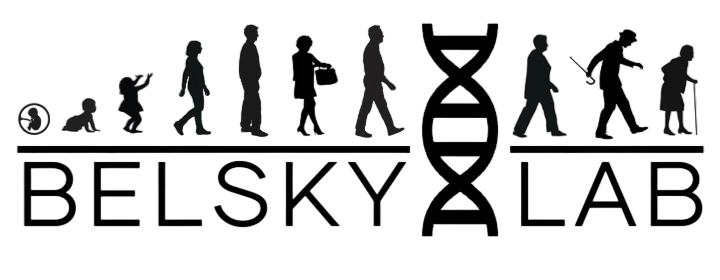Current Projects
Geroscience Computational Core
To make CUIMC a global leader in geroscience by integrating cutting-edge aging biomarkers into every stage of the transnational research pipeline.
Genomic Analysis of the CALERIE Trial to Generate New Knowledge for Geroscience.
We are conducting genomic analysis of blood, muscle, and adipose tissue from the first-ever randomized controlled trial of caloric restriction in healthy, non-obese adults. We are studying how caloric restriction, which is proven to increase healthy lifespan in many animal models, may affect biological aging in humans. (National Institute on Aging R01AG061378)
Genetic Analysis of the Dutch Hunger Winter Families Study to Boost Rigor and Robustness for Testing In-Utero Famine Effects on Aging-Related Health Conditions and Biological Aging.
The graying global population makes interventions to extend healthy lifespan a public heath priority. Health insults during the perinatal period are linked with risk for aging-related health conditions, including obesity, type 2 diabetes, and cardio-metabolic disease. If these associations are causal, interventions to prevent perinatal insults and to reverse their biological damage could delay disease onset and prolong healthspan, the length of time a person remains healthy. (National Institute on Aging R01AG066887)
The MyGoals for Healthy Aging Multi-Center Randomized Controlled Trial
MyGoals for Healthy Aging is a randomized controlled trial testing if a novel anti-poverty program slows biological aging in highly disadvantaged public housing recipients, including by inducing changes in risk factors for Alzheimer's disease/Alzheimer's disease-related dementias. (National Institute on Aging R01AG073402)
Testing Effects of Cash Transfers on Biological Aging and Risk for Alzheimer's Disease
The primary objectives of this project are to assess the effects of a cash transfer program on the prevention of biological aging and dementia risk in younger and older individuals. Additionally, we aim to investigate the association between biological aging and cognitive function in this population. The results of this research could hold substantial implications for public health by revealing the causal and long-term health consequences of socioeconomic interventions on health. Moreover, it will offer fresh perspectives on the levels of biological aging and Alzheimer’s Disease risk within the context of lower- and middle-income countries. (National Institute on Aging R01AG087158)
FAST Initiative
The FAST (Finding Aging biomarkers by Searching existing Trials) Initiative aims to determine which targeted and omics-based biomarker approaches are feasible yet innovative enough to advance development of biomarkers for clinical trials in aging.
This project aims to advance the pace of aging research and geroscience by using existing trials’ longitudinal biospecimen repositories to perform biomarker analysis across interventions to determine shared and unique changes with interventions that are mirrored in the underlying biology.
During phase one of the project, we plan to develop a large-scale partnership with existing academic research and clinical trials, engage a Scientific Advisory Board and build relationships with trial leaders.
Life-course Sociogenomic Analysis of Social Inequalities in Aging.
Life-course social science links early-life social disadvantage with adverse outcomes in aging. A gap in knowledge is how social disadvantage is biologically embedded, leading to social inequalities. A hypothesis is that social disadvantage actually hastens aging. While everyone ages chronologically at the same rate, biological changes with aging may proceed faster for some than others. These changes are thought to be a root cause of disease/disability and an intervention target to extend healthy lifespan. (Russel Sage Foundation BioSS Grant 1810-08987)
Developing Epigenetic Measurements
to Forecast Long-Term Benefits of Early-Life Interventions.
Early-life adversity a major driver of health and social problems across the life-course. Several interventions, including home-visitor programs, show potential to protect young children from lifelong damage arising from early-adversity. These interventions increase parental nurturing and prevent some early-life stress exposures. In the short- to medium-term, they benefit families and children. But longer-term outcomes vary substantially across children. (Jacobs Foundation Young Scholars Award; CIFAR CF-0249-CP22-034)









